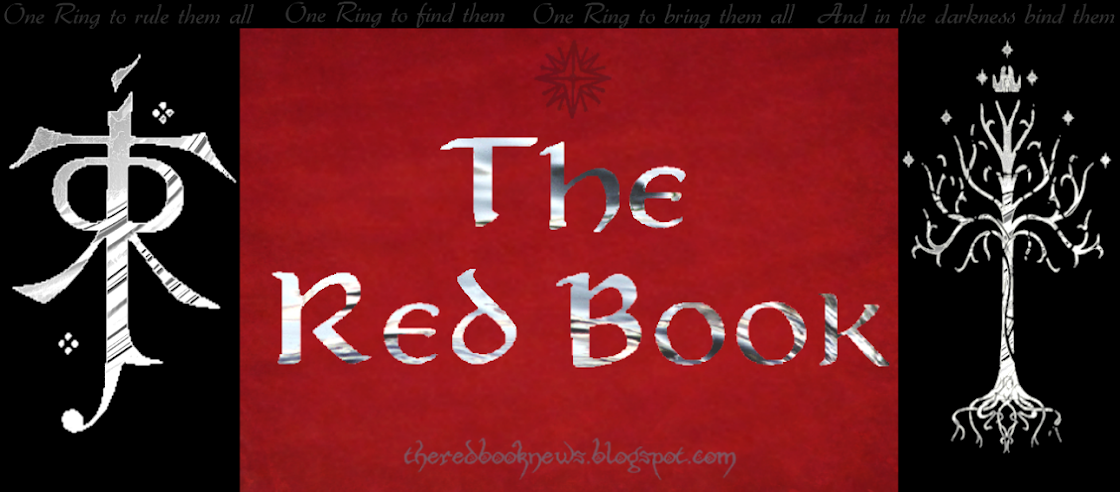After Melkor was caught, there was a long peace, during which Fëanor son of Finwë was born. After giving birth, his mother Míriel did not want to live, and lay down in the gardens of Lórien, never to wake. Fëanor married Nerdanel, and together they had seven sons. Finwë, after a long period of grieving, remarried and fathered Fingolfin and Finarfin.
Melkor was again brought before the Valar. By trickery and groveling, he convinced Manwë to let him out on 'parole'. Melkor was so helpful and friendly to all that he eventually won over many of the Valar and elves (Fëanor, Tulkas, and Ulmo not included).
Oh Fëanor, I love you, but you really messed everything up. This chapter mostly tells of things we have already read about, albeit in more detail. That tends to be Tolkien's way. He doesn't save important plot points until the end, trying to keep you guessing. He just references them off hand leaving you seething because WHY WOULD YOU TELL ME STUFF LIKE THIS AND THEN JUST BRUSH IT OFF AND NOT EXPLAIN FOR A VERY LONG TIME!!!! *ahem* Apologies. Tolkien has done this to me a lot.
Fëanor is perhaps one of the most famous elves from Silmarillion. Those Tolkien fans who have had no contact with the Silmarillion, have usually still heard the name Fëanor thrown about in both angry and reverent tones by other Tolkienites. Fëanor, the creator of the Silmarils.
Allow me to take you a little deeper into Fëanor's beginning. Born Curufinwë, he was a prince, and everything should have been perfect for him. He came during a golden age of peace, in a beautiful city upon a beautiful hill, in the land of Aman, surrounded by loving elves.
But things started off wrong from the very beginning. Míriel's death was the beginning of a long line of tragedies and sorrows for Fëanor and all the Firstborn. In a way, it was what set the ball rolling for the corruption of the Children of Ilúvatar.
"But in the bearing of her son Míriel was consumed in spirit and body; and after his birth she yearned for a release from the labour of living. And when she had named him [Fëanor], she said to Finwë: 'Never again shall I bear child' for strength that would have nourished the life of many has gone forth into Fëanor.' ... She went then to the gardens of Lórien and lay down to sleep; but though she seemed to sleep, her spirit indeed departed from her body, and passed in silence to the halls of Mandos. ... Then Finwë lived in sorrow; and he went often to the gardens of Lórien, and sitting beneath the silver willows beside the body of his wife he called her by her names. But it was unavailing; and alone in all the Blessed Realm he was deprived of joy."

Are you sad yet? Though Finwë was a good and loving father, and never blamed Fëanor for Míriel's 'death', it is likely that Fëanor blamed himself. He never knew her, but her manner of passing would never have been passed over as 'a mother who died in childbirth'. For one of these beautiful, unblemished, immortal elves to die, with no apparent cause save an event which should have been joyous...it would have been an incredible blow to everyone, especially Fëanor.
"Few ever changed [Fëanor's] courses by counsel, none by force. He became of all the Noldor, then or after, the most subtle in mind and the most skilled in hand. .... [H]e it was who, first of the Noldor, discovered how gems greater and brighter than those of the Earth might be made with skill."
He was strong-willed, and desire to master the minds of others, to learn and to create. He was not content to stay in one place, but travelled frequently. He married Nerdanel, daughter of a great smith, and she bore him seven sons.
"Now it came to pass that Finwë took as his second wife Indis the Fair. She was a Vanya ... golden-haired and tall, and in all ways unlike Míriel. Finwë loved her greatly, and was glad again. But the shadow of Míriel did not depart from the house of Finwë, no from his heart; and of all whom he loved Fëanor had ever the chief share of his thought. The wedding of his father was not pleasing to Fëanor; and he had no great love for Indis, nor for Fingolfin and Finarfin, her sons."
Another blow to Fëanor. He distanced himself from his family, exploring and working.
"In those unhappy things which later came to pass, and in which Fëanor was the leader, many saw the effect of this breach within the house of Finwë, judging that if Finwë had endured his loss and been content with the fathering of his mighty son, the courses of Fëanor would have been otherwise, and great evil might have been prevented .... But the children of Indis were great and glorious, and their children also; and if they had not lived the history of the Eldar would have been diminished."
Next, Melkor was released.
"Before the gates of Valmar Melkor abased himself at the feet of Manwë and sued for pardon, vowing that if he might be made only the least of the free people of Valinor he would aid the Valar in all their works ... But fair-seeming were all the words and deeds of Melkor in that time, and both the Valar and the Eldar had profit from his aid and counsel, if they sought it; and therefore in a while he was given leave to go freely about the land, and it seemed to Manwë that the evil of Melkor was cured. For Manweë was free from evil and could not comprehend it."
I do not wish to place upon Tolkien things of my own thought, but in my opinion, he began even then to resent, just a little, the fact that the Valar had summoned the Elves to Aman. He would have heard stories of Middle-earth and, given his personality, no doubt wished he had a way to see the star-lit land. He would have heard stories of Melkor, and Tolkien says that "none of the Eldalië ever hated Melkor more than Fëanor son of Finwë, who first named him Morgoth", so I think it safe to say that Melkor's unchaining would have significantly diminished Fëanor's respect for Manwë.

The line about comprehending evil is also very important. I think that would have been something that Fëanor would have perceived, and that would have perhaps made him more interested in the workings of evil than is healthy. He likes knowledge and control, the idea that he could make a mistake such as Manwë's because of a lack of comprehension, would have been displeasing to him. Fëanor is certainly not the sort to avoid delving into something because it could have a negative impact on him. It is easy to see how he came to dislike and disagree with Manwë.
My point in all this is, Fëanor wasn't just a stupid elf who caused problems. There was a lot more going on his life to cause his pride and rebellion. Míriel, Finwë, Manwë, Melkor...all of them contributed to him being the way he was.
"Fëanor was driven by the fire of his own heart only, working ever swiftly and alone; and he asked the aid and sought the counsel of none that dwelt in Aman, great or small, save only and for a little while of Nerdanel the wise, his wife."
Okay, I'm basically done, I just have one more little quote I want to share.
"[T]hose who will defend authority against rebellion must not themselves rebel."
"Now the Three Kindreds of the Eldar were gathered at last in Valinor, and Melkor was chained. This was the Noontide of the Blessed Realm, the fullness of its glory and its bliss, long in tale of years, but in memory too brief."
If anyone finds it odd that I am defending Fëanor (not that I approve of most of the things he did, I just hate it when he is brushed off as a 'bad guy'), don't worry, I am also a staunch defender of Saruman (he was strong through SO MUCH before he started down his dark path).

For a full list of Silmarillion Posts:
https://theredbooknews.blogspot.com/silmarillion-posts
(Lest there should be any confusion or matter of rights and whatnot, all quotes in this post are from the works of JRR Tolkien, unless otherwise mentioned. There may be slight errors, misspellings, or alternate punctuation in the quotes, and if you notice such, please inform me so that I can speedily remedy them.)
Star of Feanor by Kimberly: https://kimberly80.deviantart.com/
Lamentation for Miriel by Losselen: https://losselen.deviantart.com/
Word of Feanor by Venlian: http://venlian.deviantart.com/












